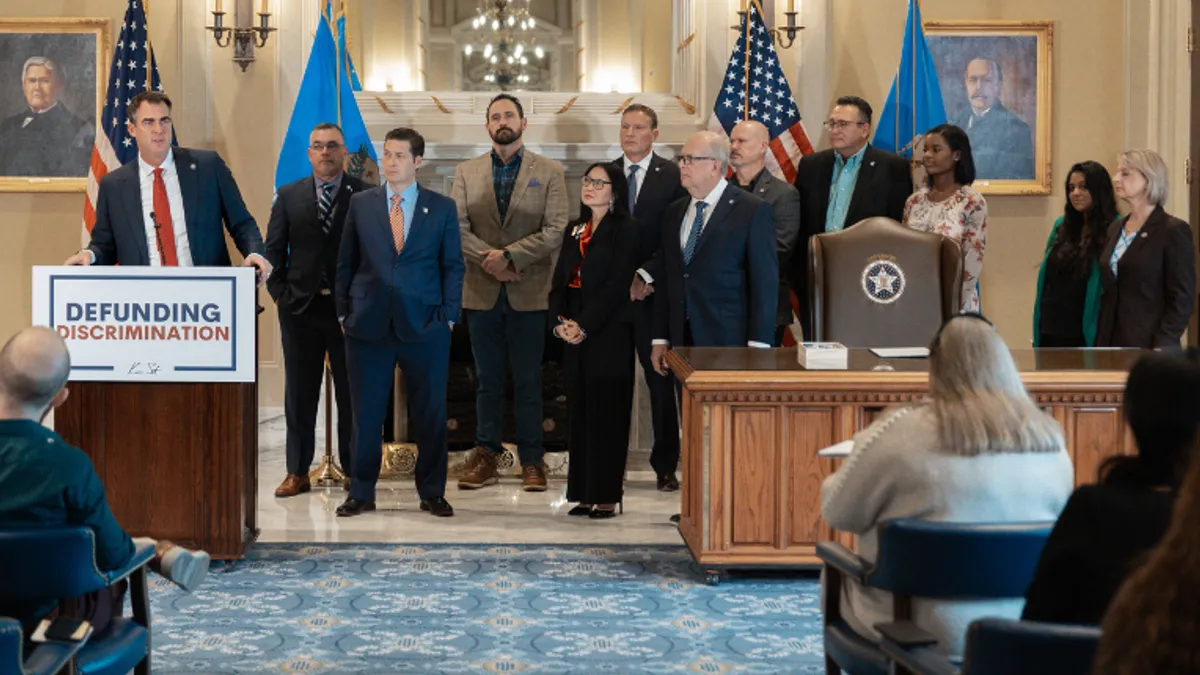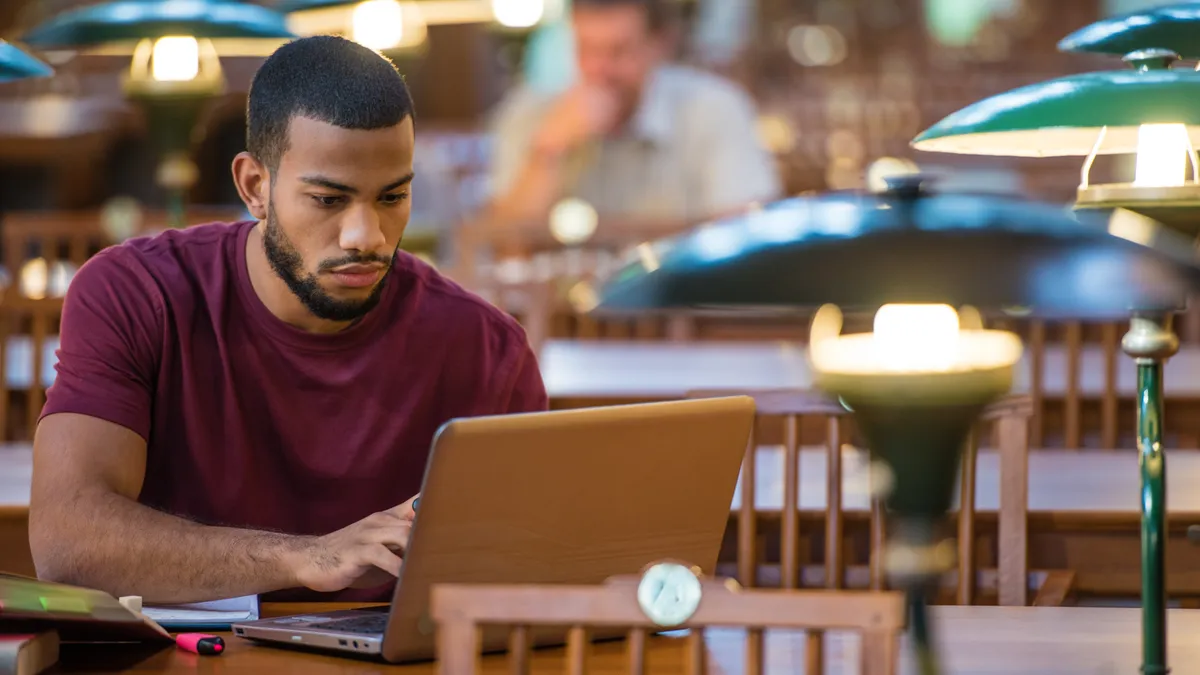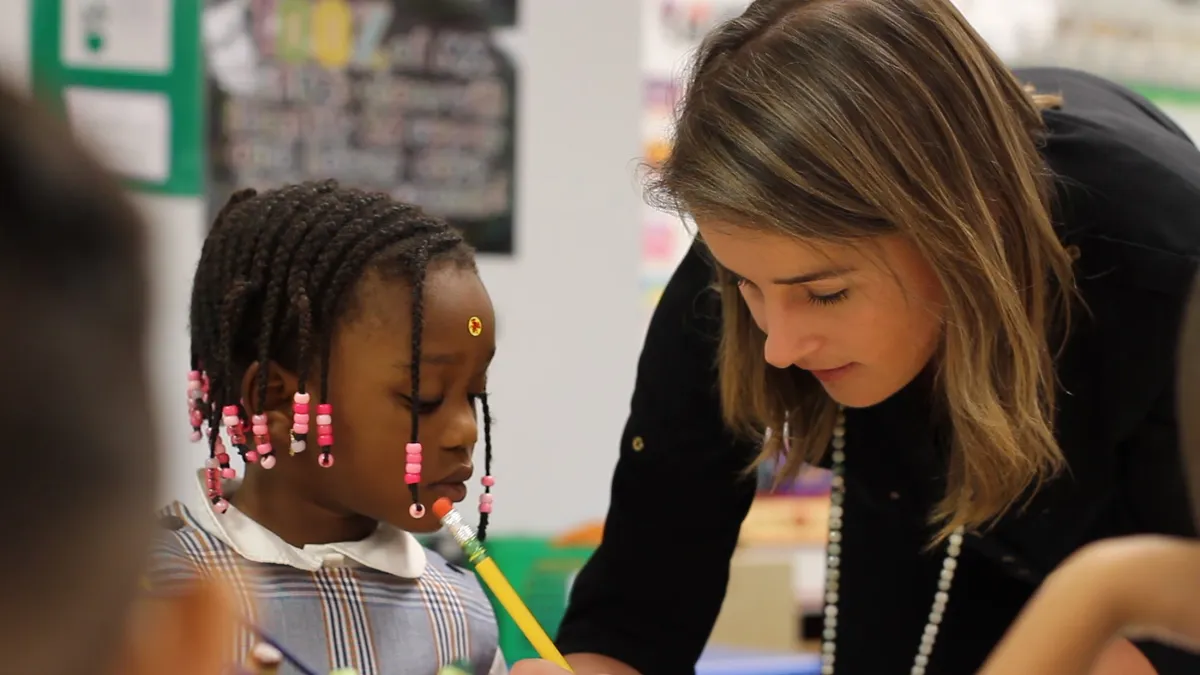This article is a guest post submitted to Education Dive.
When Donald Trump rode his escalator down in Trump Tower to announce his (now successful) candidacy for president of the United States, few of us in postsecondary education thought that what we do every day for and with students would play such a central role in the 2016 election. But it did. Decisively. And not just in obvious ways.
The post-election analysis (or soul-searching, depending on perspective) is already well underway. There will certainly be much written and spoken about what was missed, what was (fore)seen, what was riven, and what was unified. Rightfully so, this election will be analyzed as an object lesson for many reasons, political and otherwise. Those of us in postsecondary education must do this for ourselves, honestly and forthrightly, as well as be part of the larger analysis.
The 2016 election revealed numerous critical divisions in the electorate. Two are central to postsecondary education: the critique of elites as it pertains to postsecondary institutions and the fact of college education. Within the critique of elites we include such issues as “political correctness” and other aspects of multiculturalism and diversity.
We argue that if we are to use the 2016 election as a “teachable moment,” then we, ourselves, must be the students. For many, the outcome of the presidential race in particular was met with a “how could that happen?” incredulity. How and where could we have been and gone so wrong?
But that, we argue, is the wrong question.
Like us, many colleagues whose personal experiences in the postsecondary world cut across the entire sector have experienced aha! moments that help us understand what happened, why, and our role in it. For one thing, contrary to many media portrayals (but well-known by open access institutions), the typical student is no longer a newly minted high school graduate. Collectively, the students we represent in a major metropolitan consortium of colleges and universities and we teach as an adjunct faculty member at an independent university and a public university with a global reach look like the entire electorate, literally. They bring life experiences with them, that, if listened to very carefully, tell the story of this election. Yet, how much do we listen, really listen, to those stories? How well do we understand the ease or the anxiety that being in college creates for them? How do they perceive us?
We believe categorically that the postsecondary world must engage in deep analysis and contemplation of how we are perceived and the feelings we engender. A survey released in September by Public Agenda revealed deepening public skepticism of postsecondary education. Nearly half the people surveyed said that they no longer thought college education was a good investment, the same proportion questioned whether their degrees were worth what they cost, and 60% said that they did not think a college degree was necessary for success. About 70% of respondents expressed the belief that because of cost, even qualified applicants do not have the opportunity to further their education. Additionally, 60% said that colleges care most about their bottom line, and 44% said they are run inefficiently.
Postsecondary education is the target of the same types of mistrust and anger expressed toward other establishment organizations and elites. For people who are struggling to work multiple jobs at wages that have remained stagnant for decades, who look at our sticker prices and become despondent and then angry because they believe they are denied access to the one thing they have been told is the ticket up, whose impression of college campuses is shaped by a few images of lazy rivers on Snapchat, we represent all that’s wrong with society. We can and must accept and change that reality.
How?
First, we must understand the real impact going to college has on our students. The 2016 election showed that having a college degree made a difference in what positions people held on a host of issues, not the least of which was which candidate to support. We should take pride in the fact that postsecondary education changes people’s thinking. We see that in the maturation process in the ways in which students engage, for instance, in threaded discussions and in expressing openness to new ideas and viewpoints in their writing and discussions. There is truth to the cognitive development research that clearly indicates qualitative changes in thinking and reasoning that is enhanced by postsecondary education. Let’s understand and embrace that. Postsecondary education makes a deep difference.
Second, we need to really listen to what students and families from different life backgrounds have to say, not just for use in the next set of marketing materials but in the ways in which we prepare campuses for our students. We have always expected our students to come prepared for us. We have not tended to expect us to be prepared for them.
The sooner we in postsecondary education understand that we are, rightly or wrongly, are lumped in with the elites, the sooner we can rectify (mis)perceptions. More important, the sooner we can help students and families understand that the need for postsecondary education is not some element of the post-factual world to be disbelieved, the sooner we can help students see and achieve the opportunities for a better life and deeper and more meaningful civic engagement.
By taking on the role of student, we can emerge from the 2016 election wiser than we were. We will have a richer and deeper understanding of who is, and is not, included in which conversation, and who is, and is not, actually supported and given the opportunities we claim we provide. By challenging our assumptions, and discovering more known unknowns, we will be better positioned to serve all of our stated missions: career preparation, curious inquiry, and engaged citizenship.

















